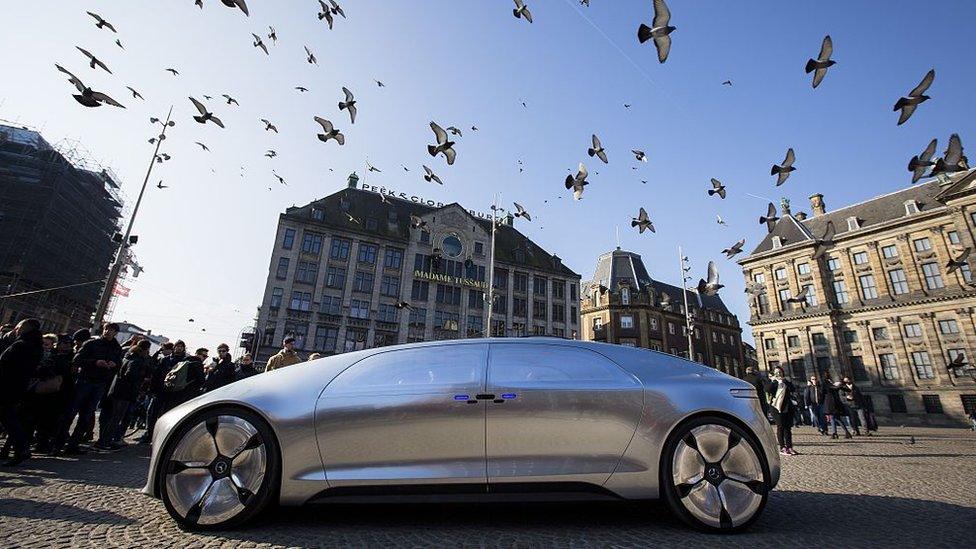Driverless cars and the economic traffic jam
- Published

Self-driving has the Midlands' name on it
The Business Secretary Greg Clark chose a 'new-tech' battery manufacturer in Coventry for the launch of the Government's Industrial Strategy. It's aim, to unblock the economic traffic jam, driverless cars and all. But separate, apparently unrelated, developments over the past few days have conspired to show just how snarled-up it is and to emphasise the daunting scale of the road blocks in the way of the Government's hopes of rebalancing the economy, boosting social mobility and, by the way, refocusing attention back from Brexit towards their domestic agenda.
For a start, the UK's tortured negotiations with the EU stubbornly refuse to budge from the headlines. That social mobility agenda, so passionately advocated by Theresa May immediately before she entered Number Ten, seems to be stuck in the slow lane too. Closing the gap between the more and less prosperous parts of the country is seen by ministers as a key test of the Industrial Strategy itself.
No sooner had it been launched than the four board members of the Government's Social Mobility Commission were resigning in protest at the lack of progress, with the West Midlands at the wrong end of the deprivation league tables.
Next came a welter of statistics underlining the size of the problem. Despite the intense pressure on Oxbridge to widen and diversify their intakes, the overwhelming majority of their students come from London and the South East. Only 11% of Oxford's intake and 12% of Cambridge's are from our part of the country, according to data following a freedom of information request by the Labour MP David Lammy. I am grateful to the Birmingham Post for highlighting findings, in the strategy document itself, that 73% of children in early years learning in south east England meet their expected standards whereas only 66% do in the West Midlands.

Jaguar Land Rover has been testing driverless cars on public roads
Four "Grand Challenges"
That's how ministers themselves define their key objectives set out in the strategy. There are indeed four of them and they are certainly challenging.
So far, so good.
They are: artificial intelligence, the global shift to low pollution growth, the business opportunities presented by the needs of an ageing population and, not least, the development of self-driving and zero pollution cars.
It's that fourth one which has our name on it.
Ministers say the prospect of automated and zero emission cars on the road by 2021 would put our part of the country at the heart of nothing less than a "Second Industrial Revolution", with changes in the law to enable developers to test their vehicles.
The motoring journalist Quentin Wilson warns that this timescale alone may be unduly ambitious.
And what about the workers?
That's the question which the shadow business minister and Labour MP for Birmingham Erdington, Jack Dromey, says is conspicuous by its absence.
He says: "Any industrial strategy which doesn't seek to tackle the worryingly low levels of worker participation in our economy is doomed to failure. The UK has the second lowest level of worker participation in the EU after Lithuania."
All of which, he says, "wastes untapped material" and makes the case for the reform of corporate governance.
Who was it who once called for workers on boards? Yes, it was Theresa May herself.
Sunday Politics Midlands
This will be our main talking point on this weekend's programme. Our political reporter Shelley Phelps will be reporting from Coventry on the prospects for those "autonomous vehicles". And I'll be joined in the studio by Amanda Milling, the Conservative MP for Cannock, and Ruth Smeeth, the Labour MP for Stoke.
And I hope you will join us too on Sunday, 10 December 2017.